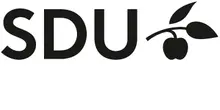Economics Terms A-Z
Asset
Read a summary or generate practice questions using the INOMICS AI tool
An asset is ANY resource that produces positive economic value for its owner - its owner being its owner as a result of a past event, most likely a transaction.
There are two types of assets, tangible and intangible, which are themselves made up of subclasses. Of the tangible variety, most commonly you’ll hear about current and fixed assets.
Current assets refer to things that can be consumed, exhausted or sold. Examples of current assets are cash, stock, and marketable securities. Fixed assets meanwhile are trickier to convert into cash, like land, buildings, equipment and machinery.
Fixed assets are used by businesses over a long period of time and they play a crucial role in a company's long-term operations. While they may not be as easily converted into cash as current assets, they hold significant value and contribute to the overall worth of a business. Examples of fixed business assets include real estate, manufacturing equipment, vehicles owned, office buildings, etc. These economic assets are not meant to be sold, but rather they generate revenue by helping the business perform its operations.
In contrast to tangible assets, intangible assets don't have a physical form. They are more like ideas or concepts, making it difficult to determine their value accurately. This difficulty sometimes leads to disagreement between the value a company claims it has and its actual market value. Examples of intangible assets include patents, trademarks, goodwill, copyright, trade names, and other intellectual property.
For instance, patents offer legal protection for inventions and innovations, giving exclusive rights to the inventor for a specific time period (to distribute and use the invention). However, trademarks are unique symbols, logos, or names that can distinguish a company's products or services from others in the market, and they are valuable assets that help create brand recognition and customer loyalty. Just like how certain logos and colors are known by almost everyone, like the specific dark blue associated with Yves Klein.
Meanwhile, goodwill in economics refers to the positive associations that consumers have about the business; this contributes to factors such as reputation, customer loyalty, and brand image. Goodwill can be measured when a company acquires another business (takeover) for a price higher than the net value of its identifiable assets.
Copyright is meant to protect original works of authorship, including literature, music, art, and software, giving exclusive rights to their creators. And finally, trade names are names or symbols used to identify and differentiate a company or its products in the marketplace.
Intangible assets can have a significant impact on a company's competitive advantage in their field and long-term profitability. They are often crucial in attracting new customers, creating innovation, and establishing a unique position in the market. However, their intangible nature makes it challenging to measure their value accurately, as they are not easily quantifiable like tangible assets are.In summary, intangible assets lack a physical form and include patents, trademarks, goodwill, copyright, and trade names. Even though evaluating intangible assets and their value can be more complex, at the end of the day, they play an important role in a company's success, contributing to its market capitalization and competitive advantage.
Further Reading
“Capital Asset Prices: A Theory of Market Equilibrium under Conditions of Risk" by William F. Sharpe is a perfect paper to dive more into the topic of assets. This seminal paper introduces the Capital Asset Pricing Model (CAPM), which provides a framework for understanding the relationship between risk and return in financial markets, explains the general concept of assets, and more.
Good to Know
Did you know that assets can have negative values? While we typically associate assets with positive values, there are times where an asset can have a negative net worth. This occurs when the liabilities associated with the asset outweigh its original value.
One example of this is a mortgage-backed security (MBS). An MBS represents a pool of mortgage loans that are packaged and sold to investors. If the underlying mortgage loans in the MBS default or decrease in value, the MBS itself can have a negative value, representing potential losses for investors. These instruments were one important cause of the Great Recession that began in late 2007.
-
- Postdoc Job
- (Remote)
- Posted 3 weeks ago
Vacancy for a Postdoctoral fellow
At University of Ghent in Gent, Belgien
-
- Konferenz
- Posted 1 week ago
47th RSEP International Multidisciplinary Conference
Between 15 May and 16 May in Barcelona, Spanien
-
- PhD Program, Program, Postgraduate Scholarship
- Posted 3 days ago
PhD Program in Management - 11 Fully Funded Scholarships
at Luiss Guido Carli University of Rome in Rome, Italien













